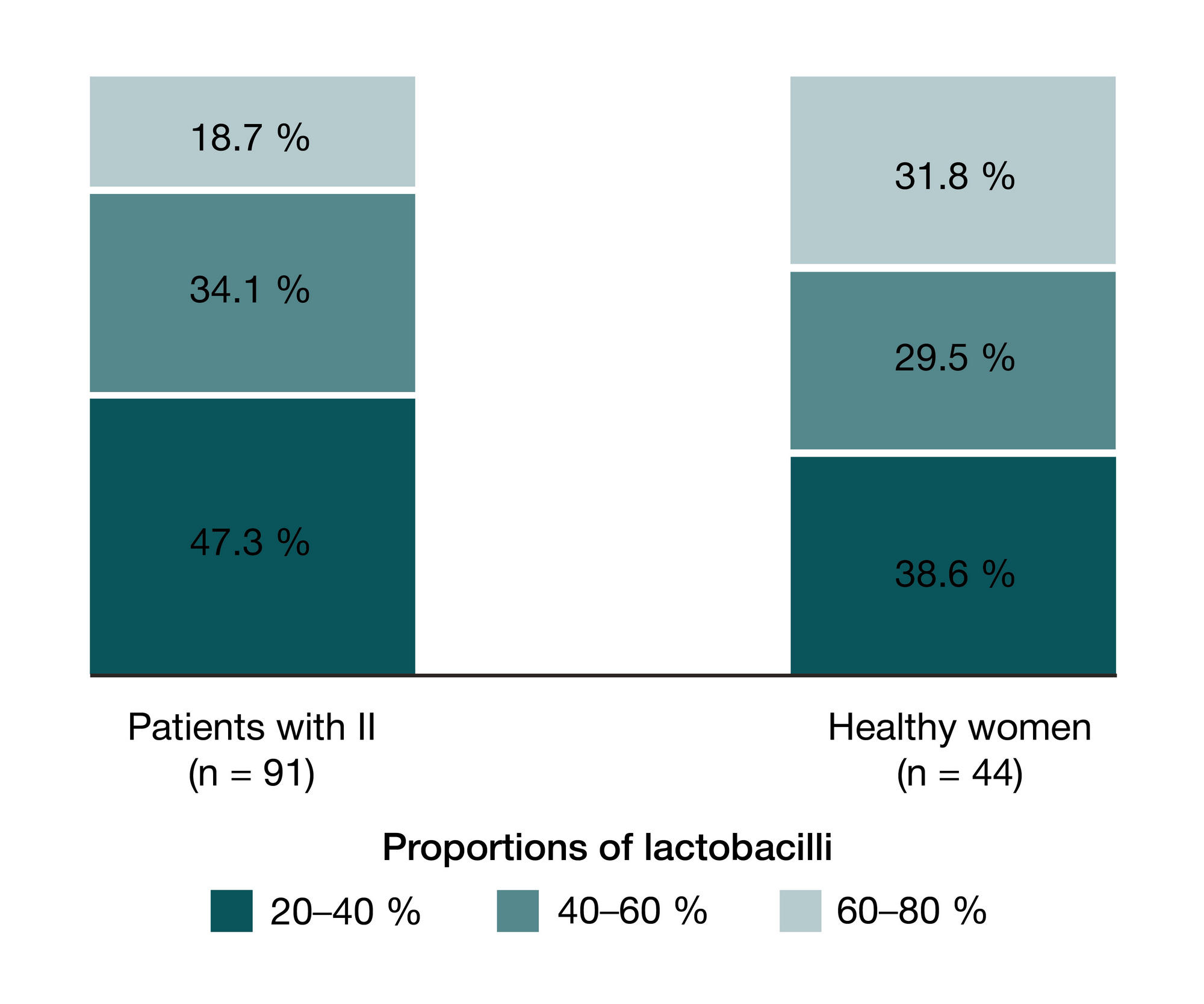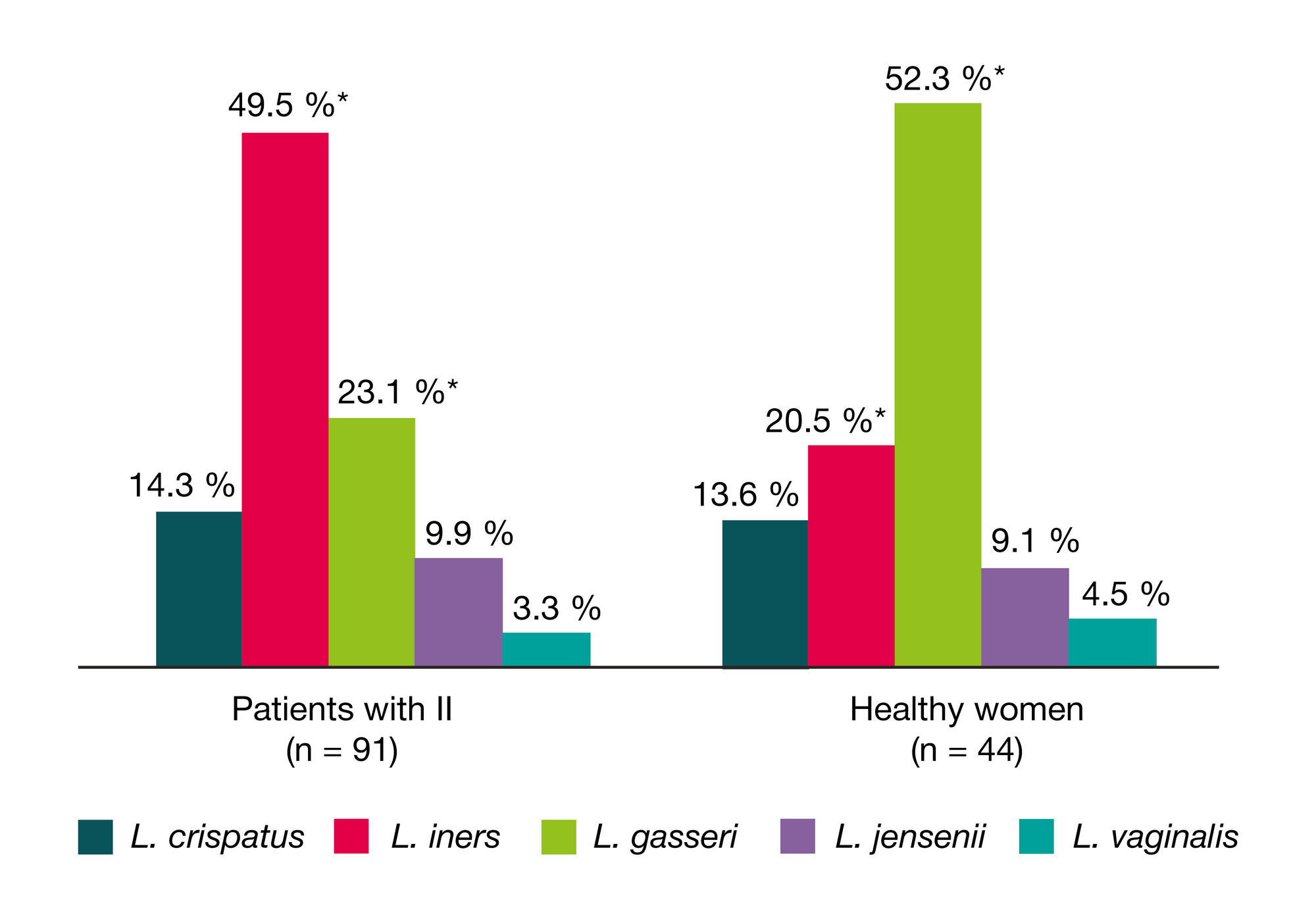
This article is an open access article distributed under the terms and conditions of the Creative Commons Attribution license (CC BY).
ORIGINAL RESEARCH
Prevalence of Lactobacillus iners in the vaginal microbiota of women with moderate dysbiosis is associated with clinical symptoms of infectious inflammatory condition of the vagina
1 Department of Microbiology, Virology and Immunology, Faculty of Preventive Medicine,Ural State Medical University, Yekaterinburg, Russia
2 Harmony Medical and Pharmaceutical Center, Yekaterinburg, Russia
3 Department of Obstetrics and Gynecology, Faculty of Medicine and Healthcare,Ural State Medical University, Yekaterinburg, Russia
Correspondence should be addressed: Еkaterina S. Voroshilina
ul. Furmanova, d. 30, Yekaterinburg, Russia, 620142; moc.liamg@anilihsorov
Acknowledgements: the authors wish to thank Director of Harmony Medical and Pharmaceutical Center, Yekaterinburg, for the opportunity to conduct the study at the facilities of the Center.
Contribution of the authors to this work: Voroshilina ES — analysis of literature, research planning, data collection, analysis, and interpretation, drafting of a manuscript; Plotko EE — data analysis and interpretation, drafting of a manuscript; Khayutin LV — data collection, analysis, and interpretation, drafting of a manuscript; Tischenko NA — data analysis and interpretation; Zornikov DL — analysis of literature, research planning, data collection, analysis, and interpretation, drafting of a manuscript. All authors participated in editing of the manuscript.



